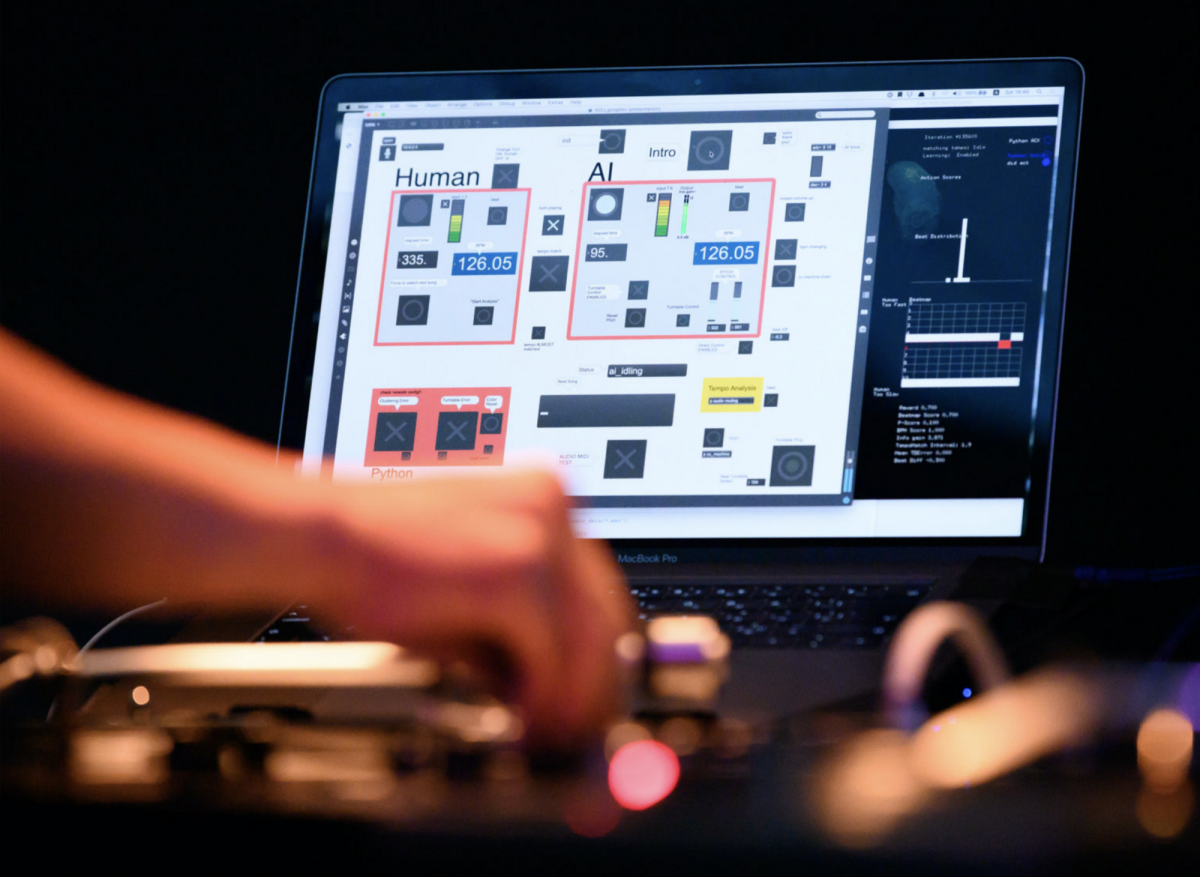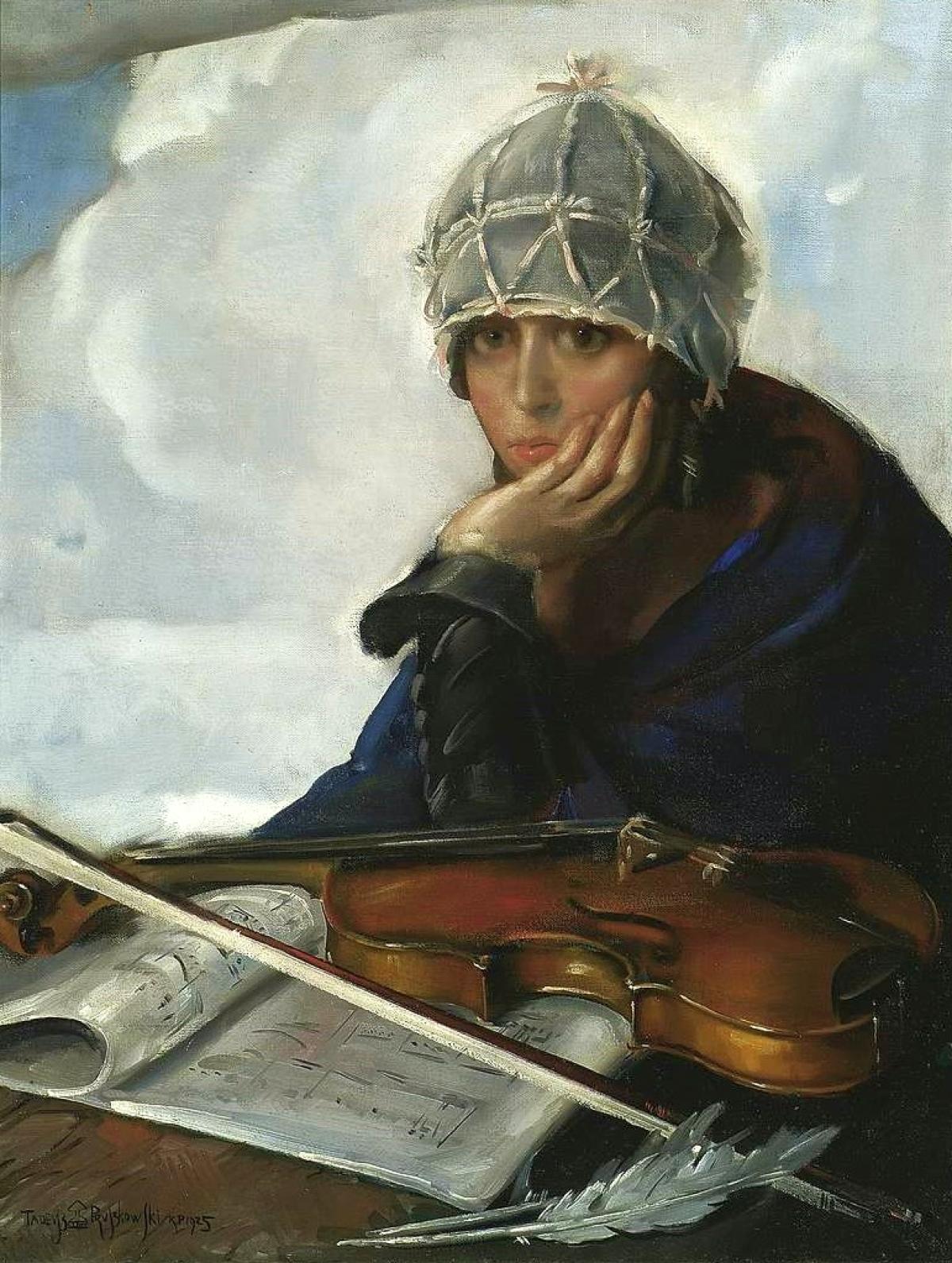
The Politics of Sampling in the Age of Machine Learning
In this essay, Eduardo Navas considers the political implications of sampling as a cultural variable in relation to aesthetics and labor in juxtaposition with the emergence of machine learning and artificial intelligence. Navas reflects on how automated and self-training forms of production are reshaping the creative possibilities in music and culture. A key issue that he evaluates is how self-training algorithms are repositioning the creative process as a political trope part of meta-creativity.
Sampling is a form of appropriation that is increasingly enhanced with the development of computing technology, which itself is grounded in the economics of constant innovation. Sampling, when considered as a vector for transformation, finds itself in perpetual reconfiguration as a sprawling innovative cultural variable with no clear direction: open to be implemented for diverging interests in the politics of culture, while challenging definitions of creativity and labor.
Sampling in our late stage of the Anthropocene functions in a transparent state of meta-production (an awareness of the interrelation of multiple cultural, economic, and technological layers that inform daily reality). Sampling’s economic implications are mediated by the aestheticization of human action through the displacement of workmanship. Sampling is a process that became quite transparent in the postmodern period during the late second half of the twentieth century. Its technological implementation makes it possible for creativity to gain critical distance from its production. Conceptual art and musique concrète are two examples of this process that is now fully in place with the emergence of machine learning (ML) in creative practices in art, music, literature, and culture at large. Neural network projects such as This Person Does not Exist as well as works by AICAN implement machine learning algorithms to produce images that, without contextual information, would be assumed were created by a human.
Sampling Turns Labor into an Executable Abstraction
Stripping this cultural equation to its basics, we must reconsider that the political in sampling has consistently been evident in music, which remains the harbinger of culture (Attali 1985, 136). During the seventies and eighties, sampling in music forecasted the rising importance of selectivity as a defining factor in the creative process. Sampling questioned labor and talent; it was dismissed by many as an uncreative act: a banal appropriation that anyone could perform. The assumption was that with sampling there was no need for the type of practice that goes into mastering a musical instrument, and that sampling was merely the process of pushing buttons. This assumption lingers and finds its way even into constructive reflections on sampling’s role in remix culture. Kirby Ferguson states in his well-known short film Everything is a Remix, Part 1: «Skip ahead to the present… and anybody can remix anything. Music, videos, photos, whatever; and distribute it globally pretty much instantly. You don’t need expensive tools, you don’t need a distributor, you don’t even need skills» (Ferguson 2010, 01:15–01:23; emphasis by Eduardo Navas).
Regardless of this stigma, or perhaps because of it, sampling questioned originality once it became a vital element of remix as a creative practice; it challenged assumptions of creativity: sampling compressed labor as a modular method consisting of executable actions that could be optimized through depersonalization; to be repurposed similarly to musical notes available on the piano, the guitar, or any other instrument to create compositions of all types. This is the case for all media beyond music. Sampling as a foundational property of remix made possible the dissemination of ideas and the production of new forms based on a selective process that absorbed physical labor as a subverted action (an analogical algorithm reconfigured to be performed by a machine) in the service of intellectual labor. Hence, sampling exposes the depersonalization of labor, turning it into executable abstraction.
The Paradox Behind the Politics of Sampling
Politics of sampling, in effect, emerge with the mashing of selectivity against labor: selectivity connotes intellectual reflection while labor connotes physical action. This opposition frames sampling paradoxically as both aesthetic and practical; sampling within this framework is a cultural mashup defined by both a sense of purposelessness and direct action: entertainment vs. criticality.
Sampling can, at times, make possible a pleasurable engagement leading to change; aesthetic experience thus can be simply enjoyed even when being critical and potentially life-changing. This is the paradox behind the politics of sampling informed by the selective process that now has been passed on to computer algorithms. The challenge sampling poses to labor is currently found in the delegation of creative workmanship in machine learning (a brute form of artificial intelligence AI1). With ML one can train an algorithm to compose a new work of visual art, music composition, or literary work based on thousands of examples. In this case, material that is fed can be used by the ML algorithm to develop works that are pushed beyond the derivative in order to appear original. Sampling here is used towards intertextual production that functions along the lines of cultural citation: the reference to previous work in a new work often found in films and novels. The automation of labor in this case, which is part of meta-creativity, challenges previous definitions of authorship and creativity – works of art produced with generative adversarial networks GANs (Goodfellow et al. 2014) are obvious examples.
Human’s Constant Quest to Control All Things
Political sampling, as a proper variable of creativity, emerges in meta-creativity as the delegation of workmanship to obliterate clear lines of what is right or wrong: in politics the point is to find a negotiable position. In the stage of meta-creativity, machine learning, while freeing humans from labor intensive performance of repetitive actions (including playing riffs on instruments) to focus on broader issues that inform the creative process (much like film directors or composers do), also pushes humanity to question its own identity based on the aestheticization of labor as a means towards humanistic identity. Politics have always been about the negotiation of human identity among economics, culture, and society. Political sampling’s cultural relevance is contingent upon compromises made among humans in relation to their evaluation of the world. Such compromises often are defined by a collective narcissistic obsession to domesticate that which appears to be uncontrollable – nature is perhaps the most obvious historical example. And in this sense, machine learning is the most recent manifestation of humans’ constant quest to control all things.
We seek to dominate everything through our ability to turn materiality into modular pieces optimized to remain remixable – labor, the very process through which this takes place, paradoxically, is subjected to the very process it makes possible: it is, after all, a set of executable actions. Political sampling remains relevant due to the contentions between aesthetics and labor when selectivity pushes both concepts against each other to reposition labor as a non-human action to turn it into a mere algorithm delegated to be performed by computers. In the rise of AI, sampling holds an ambiguous political position due to its ongoing re-appropriation of culture.
- 1. Garry Kasparov defines contemporary artificial intelligence in this form (Fridman 2019).
List of References
This article is part of Norient’s online publication Sampling Politics Today, published in 2020 as part of the research project «Glocal Sounds – Re-Working and Re-Coding Place References» (No. 162797), funded by the Swiss National Science Foundation (SNSF) and supported by the Bern University of the Arts HKB.
Bibliographic Record: Navas, Eduardo. 2020. «The Politics of Sampling in the Age of Machine Learning». In Sampling Politics Today, edited by Hannes Liechti, Thomas Burkhalter, and Philipp Rhensius (Norient Sound Series 1). Bern: Norient. DOI: 10.56513/nftg6449-23.
Biography
Links
Published on September 24, 2020
Last updated on April 09, 2024
Topics
Sampling is political: about the use of chicken clucks or bomb sounds in current music.
About the ups and downs of cross-cultural creativity: Korean reggae, vaporwave, and the worldwide Hindu Holi festival.
How does this ideology, but also its sheer physical expressions such as labor affect cultural production? From hip hop’s «bling» culture to critical evaluations of cultural funding.
Special
Snap



